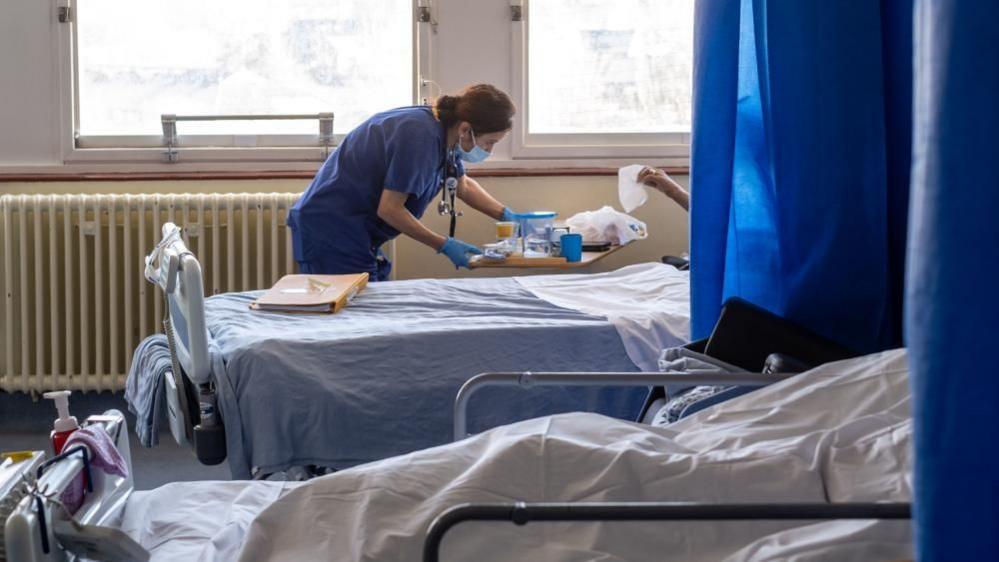How are NHS workers preparing for a busy winter?
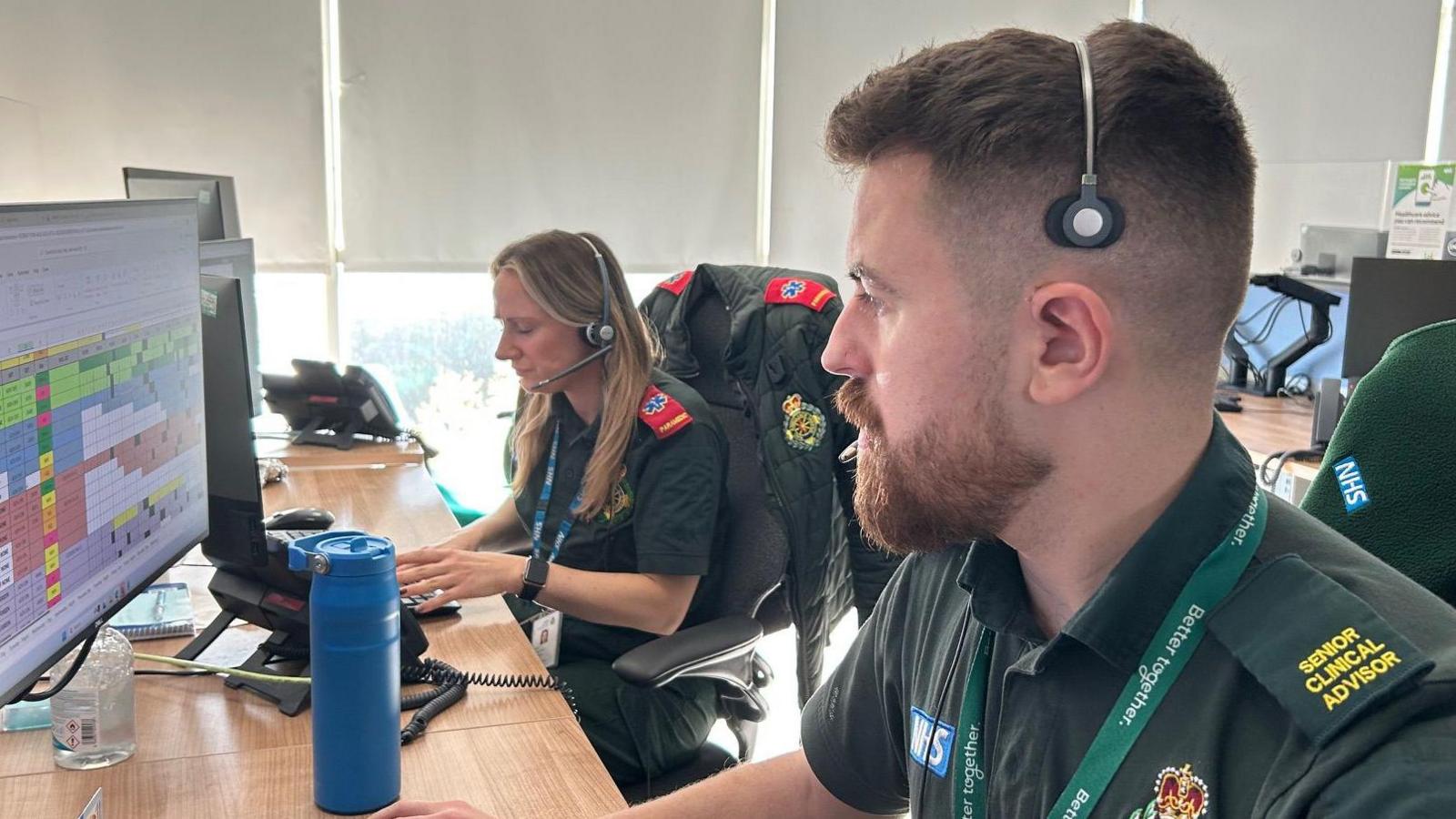
The North East Ambulance Service is gearing up for its busiest time of year
- Published
Winter is the busiest period for the NHS, with the flu season, an increase in respiratory conditions, and colder weather all adding to the challenges facing the health service. Frontline staff across the North East and Cumbria tell us how they are getting ready for increased demand.
James Atkinson used to be a steelworker on Teesside. Now, he's facing quite a different challenge.
It is his second winter as a paramedic and says the season brings a whole range of different problems.
"We'll still get our normal jobs. But there's the additional challenge of cold and flu season, respiratory conditions and driving on the road in snow and ice."
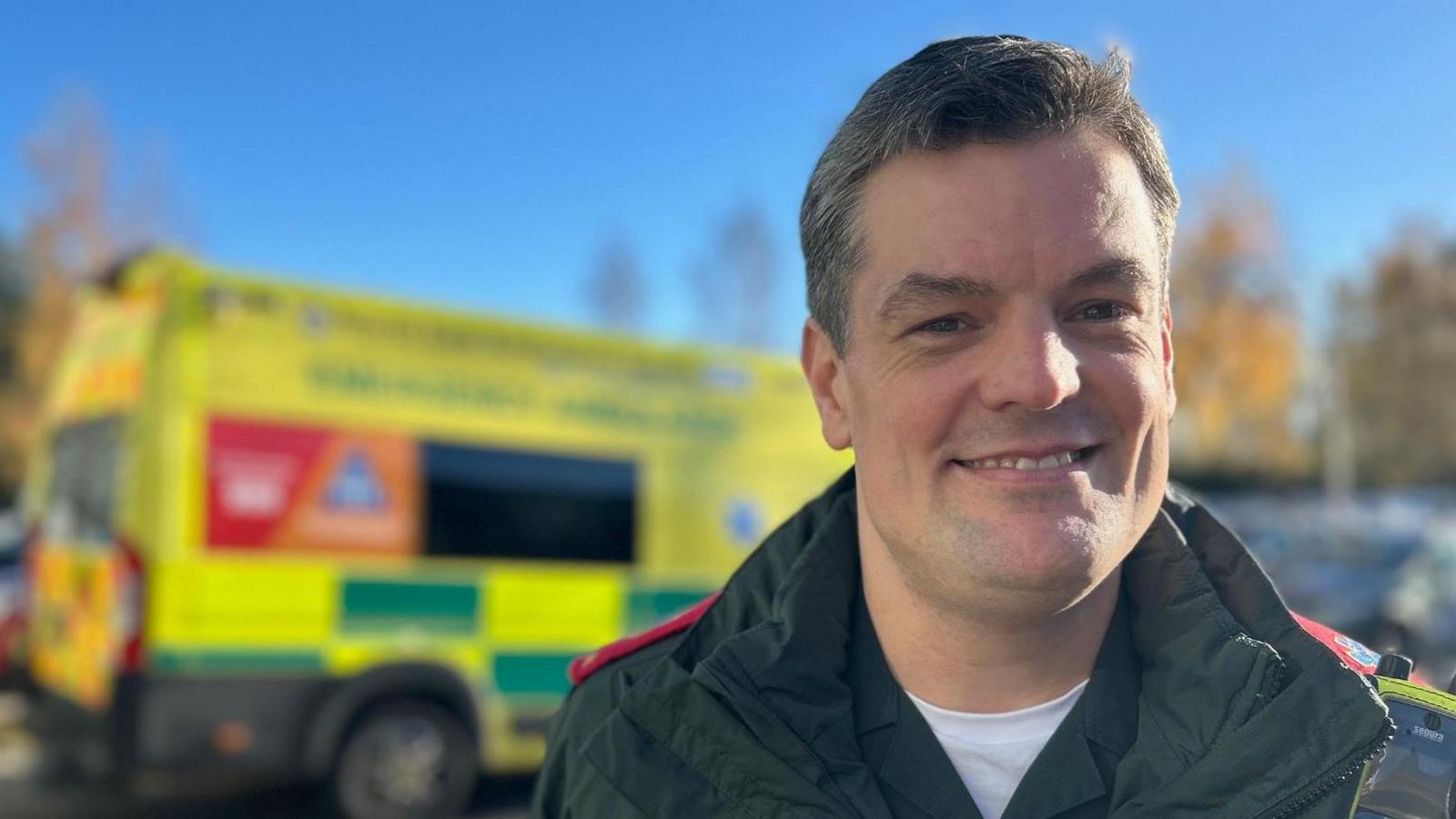
This will be James Atkinson's second winter as a qualified paramedic
He says it is something paramedics try to prepare for "but nothing can prepare you in some cases".
He says 12-hour shifts can be long days but that "being able to provide care for the people that need us most is absolutely brilliant".
The North East Ambulance Service (NEAS) has made changes after last winter.
In the past year, NEAS received an average of 1,220 emergency 999 calls a day.
But December 2024 was the busiest month, with about 200 more calls a day.
This winter, NEAS says it has more call handlers and clinicians to deal with them.
Hannah Dickson will be one of about 50 people answering 999 and 111 calls on a typical shift.
She says the public should have full trust in whoever answers the phone, but also urges callers to be sensible.
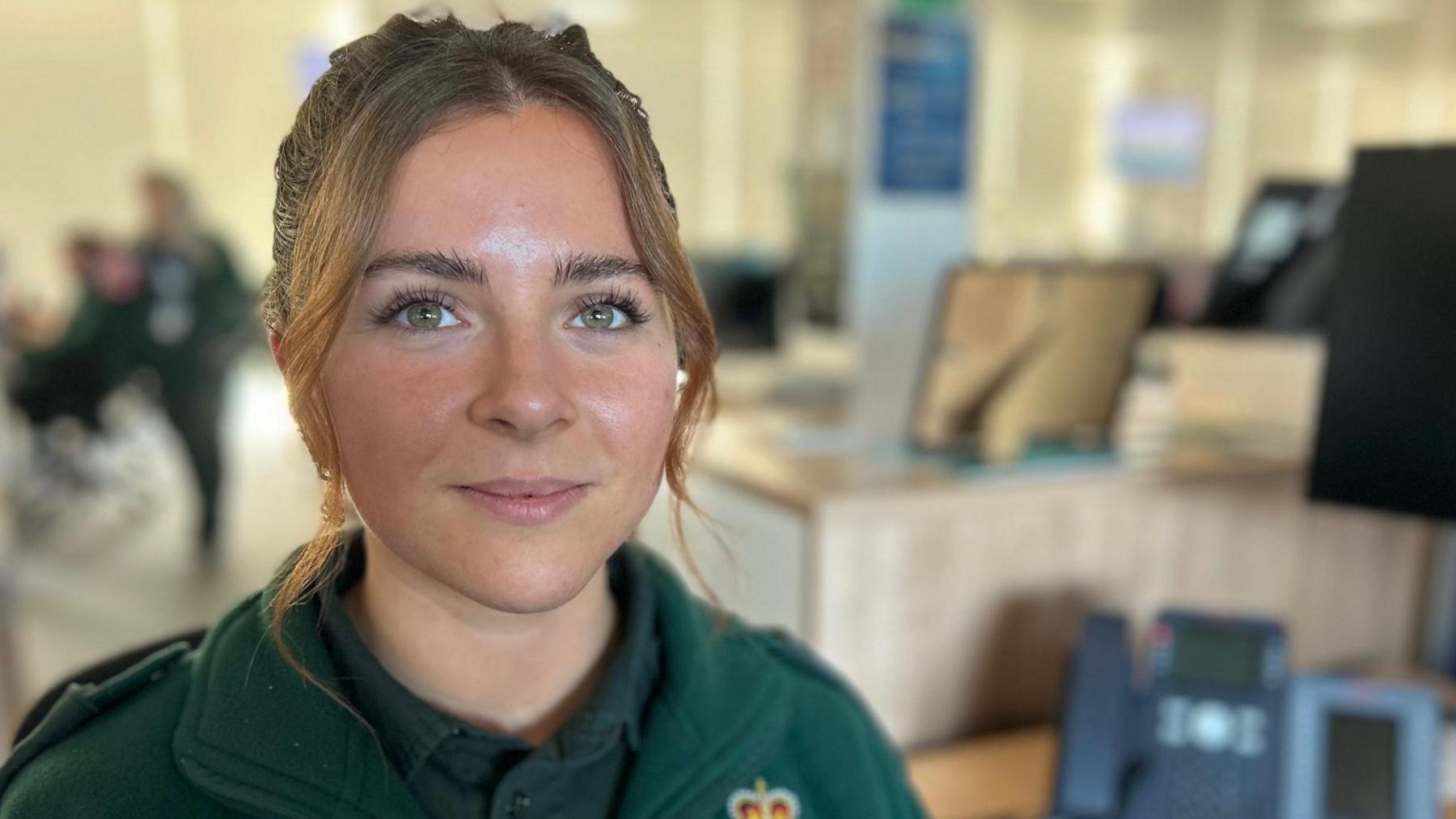
Hannah Dickson has been a 999 call handler for the North East Ambulance service for three years
"Sometimes people think they might need help urgently. But urgent isn't the same as an emergency."
She says she regularly answers emergency calls about minor ailments like coughs, colds and sore throats.
In the last year, 8.8% of all 999 calls to NEAS were classed as life-threatening.
"I would always suggest to think – is it life-threatening? If not, then please ring 111 because they really can help," Miss Dickson adds.
NEAS created seven clinical navigator jobs in September, designed to ease demand on ambulances over winter.
Nurse Kyle Grisdale is one of them, and his job is to decide whether an ambulance is really needed for a 999 call.
When an ambulance has been requested, he will call the patient back to assess whether another service might be more appropriate for them.
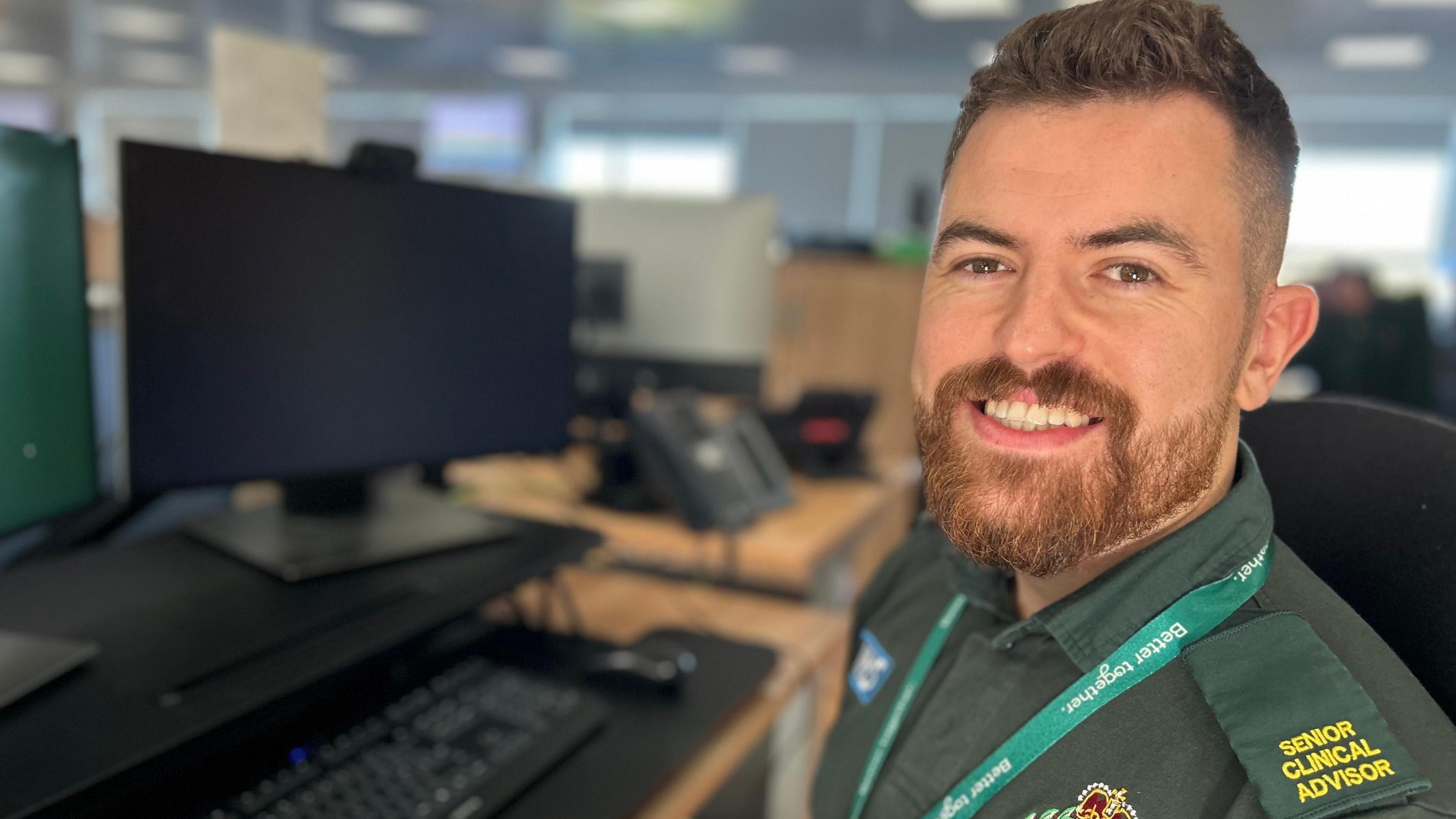
Nurse Kyle Grisdale is helping to decide whether fewer ambulances need to be sent
"Patients who get an ambulance believe it will get them seen quicker once they arrive at their A&E department," he says. "It's not always the case."
He says if patients are referred to an alternative service like an urgent treatment centre or a GP then "most of the time there is an appointment to go with that, so that reduces the wait".
In the past six months, NEAS says its clinicians have prevented 1,600 ambulances from being sent to patients unnecessarily by either treating them over the phone or referring them to another NHS service.
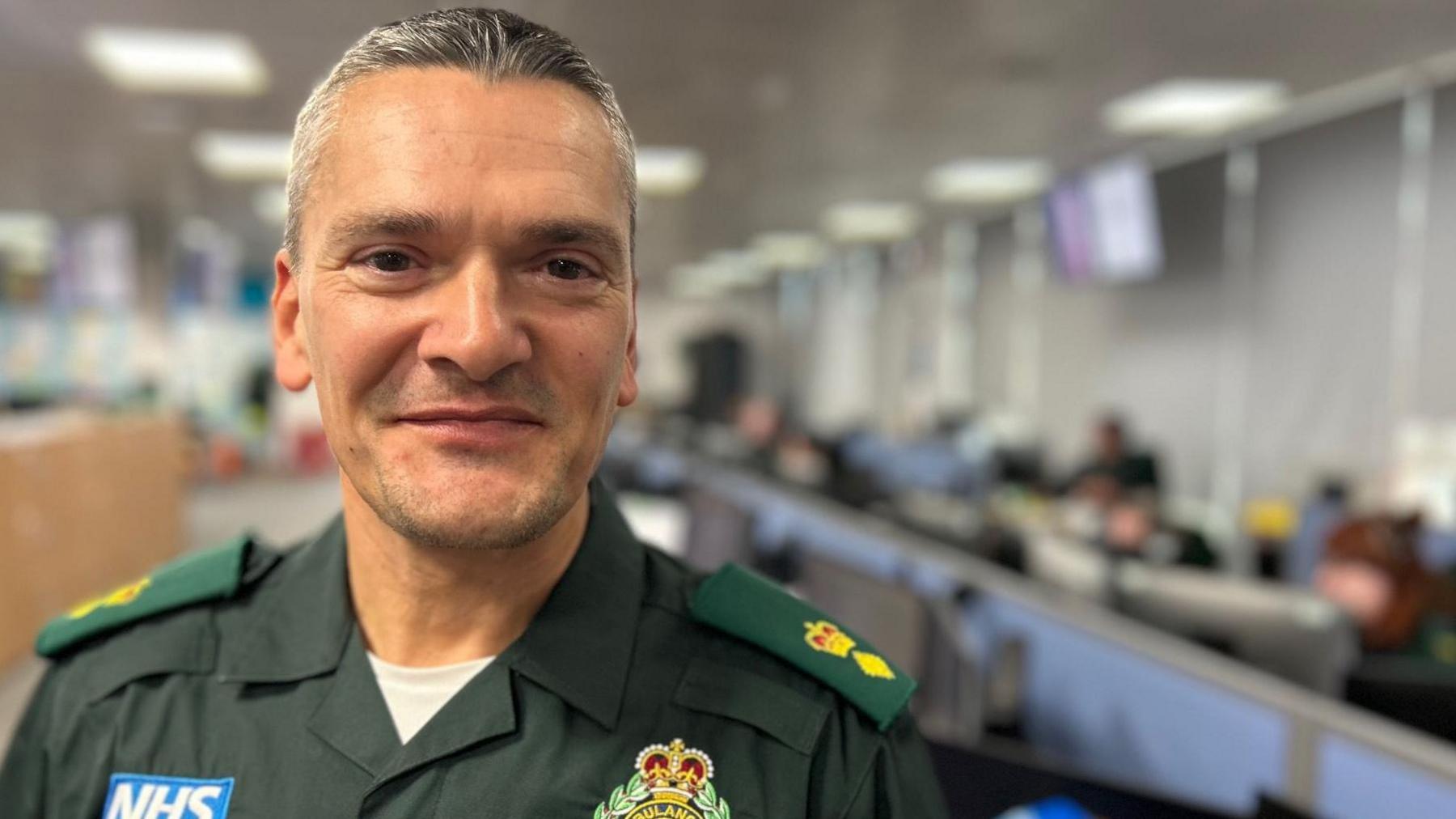
Stuart Holliday is head of resilience at the North East Ambulance Service and says they are ready for whatever winter brings
The NHS has been planning for this winter since the last one, which saw intense pressure on services around the country.
"We do a lot of debriefing. What did we do right? What do we need to better?" says Stuart Holliday, head of resilience at the North East ambulance service.
He says plans are drafted in May and June, then tested through exercises, until final plans are in place and ready for winter.
"We've got more crews out on the road, we've got more call handlers, we've got more clinicians on the end of the phone, in order to deal with the rising demand."
He says there are also plans to ensure the vehicles are roadworthy, and access to 4x4 vehicles for rural locations in bad weather.
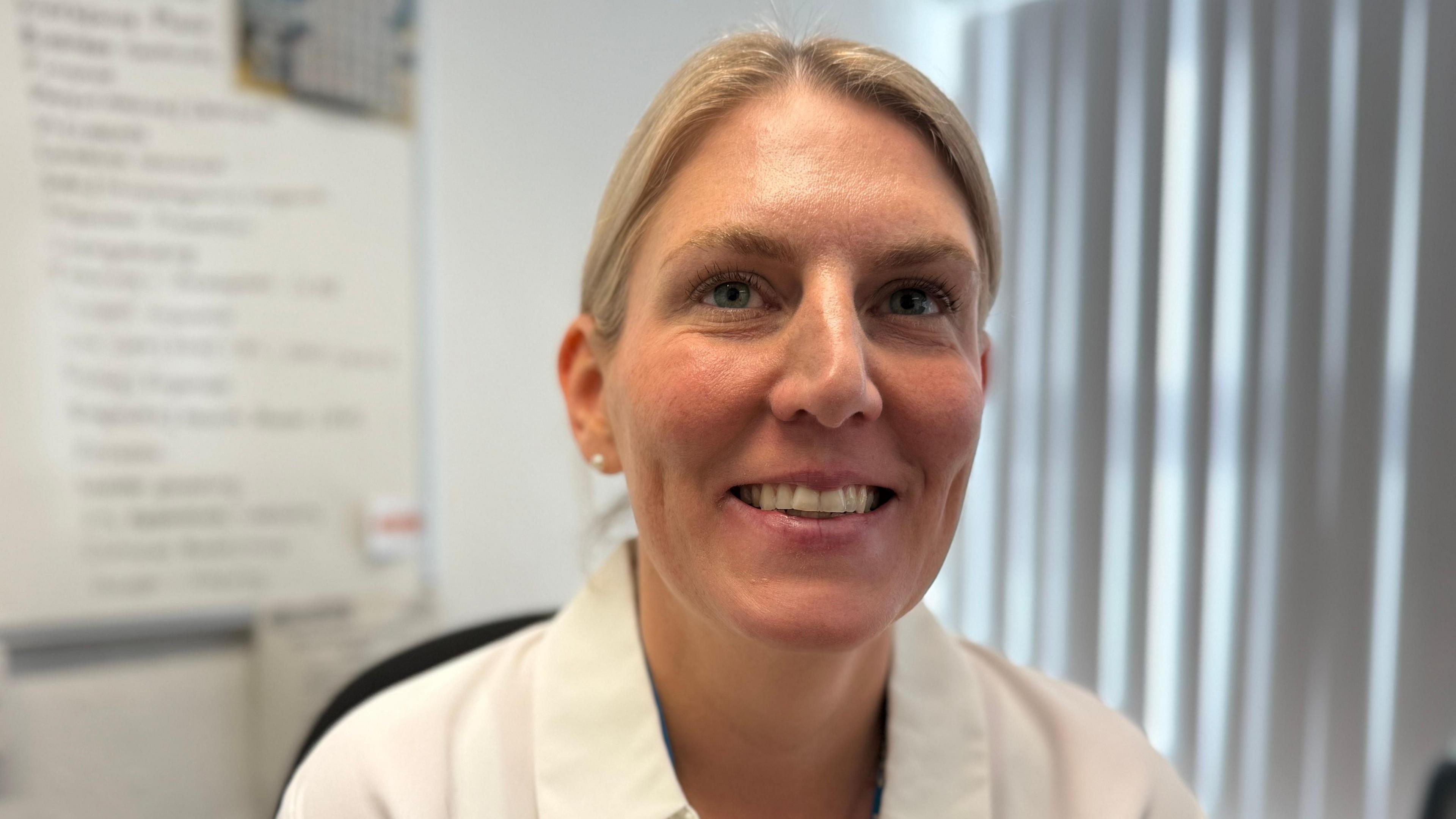
GP Victoria Gates is working on a project in Cumbria to decide if patients will be better being treated at home
More hospitals in the North East and Cumbria are also using "virtual wards" this winter, where patients can be monitored from home.
Leanne Armstrong, from the North Cumbria Integrated Care trust, says patients can be much more comfortable there, and for the elderly, long stays in hospital can result in muscle loss.
"Hospitals are noisy and bright places and you can't recover if you can't sleep," she says.
Wigton Hospital in Cumbria has started running a project which sees various health professionals working together to decide if treatment at home is the best option for a patient.
GP Victoria Gate, who works on the hospital's multi-agency telephone communication hub (MATCH), says it is not just compensating for a lack of hospital beds.
"Well over 60% of all patients we come into contact with here at MATCH, they don't go to A&E. Without this service that would have been much higher," she adds.
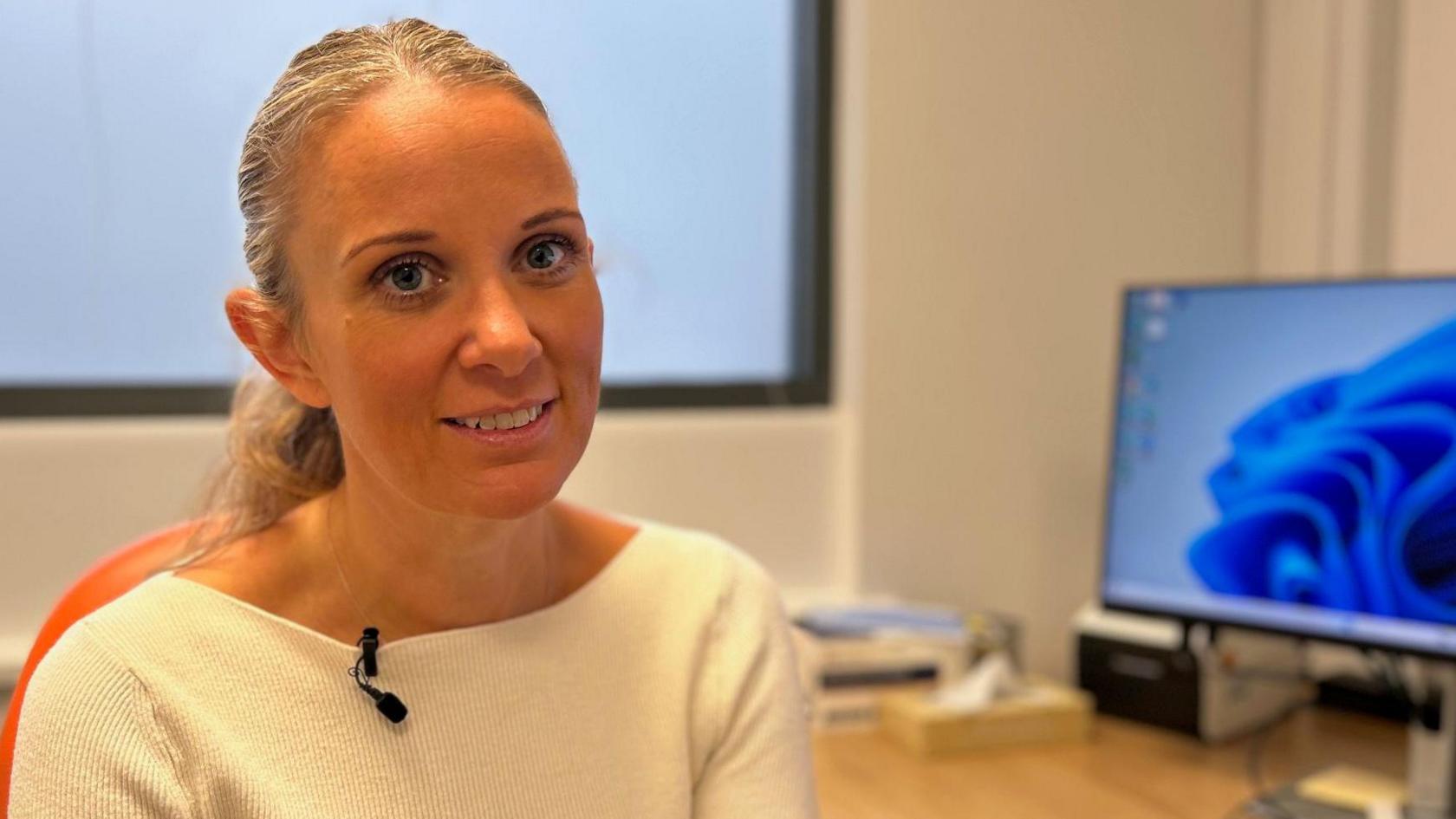
Dr Alex Kent says she is worried about flu this winter
GPs are expecting a busy winter, too.
The flu season began a month earlier than usual and has been predicted to be the worst in a decade.
"We're already seeing high levels of flu circulating and we're seeing hospitalisations. So yeah, we're worried about it," says Dr Alex Kent, medical director for the North East and Cumbria.
By the middle of November, only half of those eligible for the flu vaccine had come forward.
The vaccine is available free of charge for a large proportion of the population including people over 65, people with certain health conditions, residents in nursing homes, NHS workers, carers and children.
"The thing with flu is it's entirely preventable," Dr Kent adds. "It's a really horrible virus. We do see people dying. So we would really like to encourage people to get vaccinated."
Free Covid boosters are also available this winter, but the criteria has been tightened, external because the illness is not expected to be so severe.

Pharmacists like Sri Pusapati are offering flu and Covid vaccines this winter
As well as offering Covid and flu vaccines, many pharmacies are providing extra services this winter to reduce the demand for GP appointments.
The Pharmacy First service allows them to prescribe medicine for things like shingles, sinusitis or ear infections.
Sri Pusapati runs two pharmacies in Washington on Wearside, and in Seaham in County Durham.
She says some patients had reservations at first, but, because she says the service had been run efficiently, they were beginning to trust it.
"That translates to the number of people walking through the door," she says.
Additional reporting by Mark McAlindon
Follow BBC North East on X, external and Facebook, external and BBC Cumbria on X, external and Facebook, external and both on Nextdoor and Instagram, external.
Get in touch
Do you have a story suggestion for BBC North East & Cumbria?
Related Articles
- Published9 November
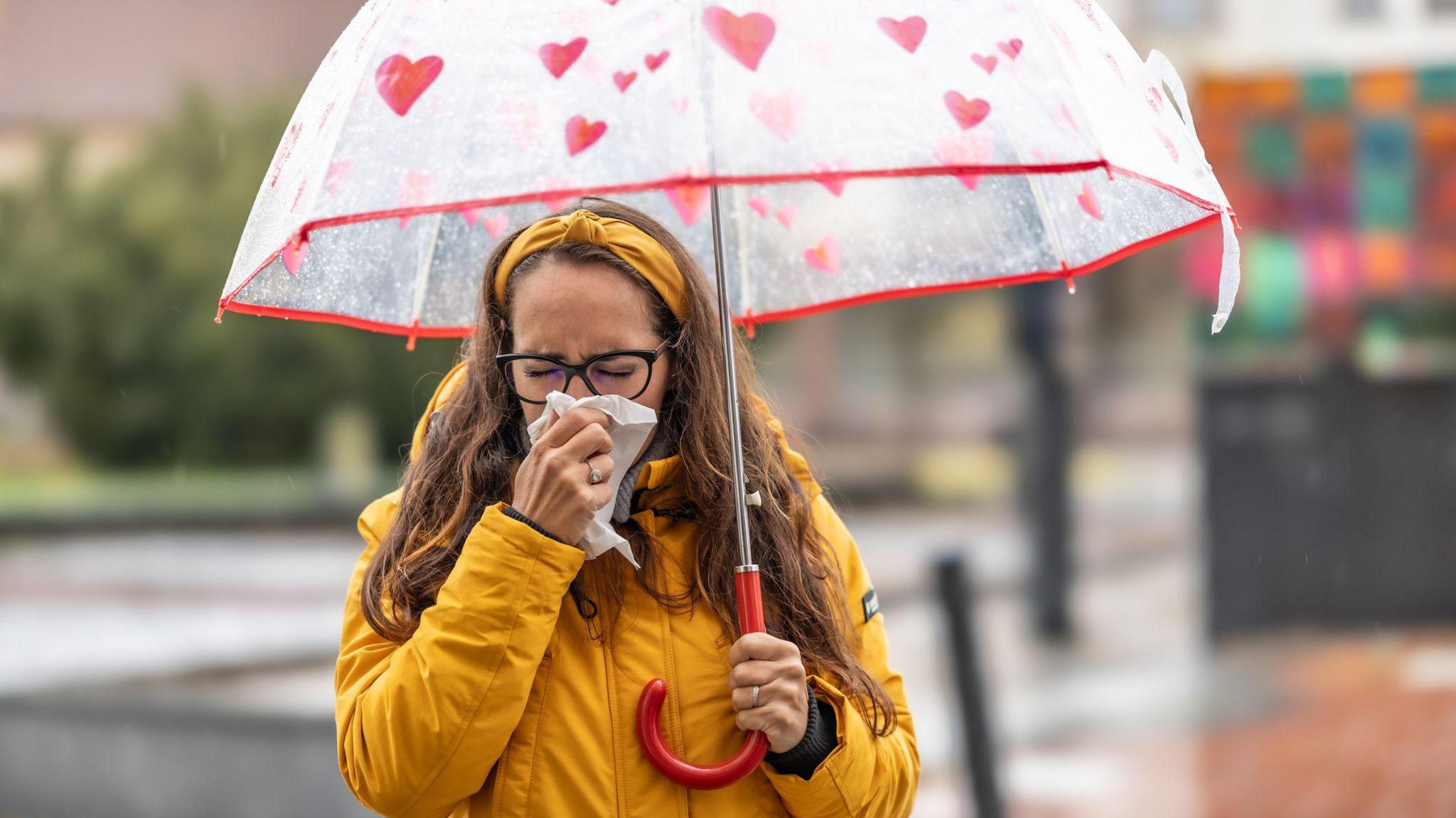
- Published9 October
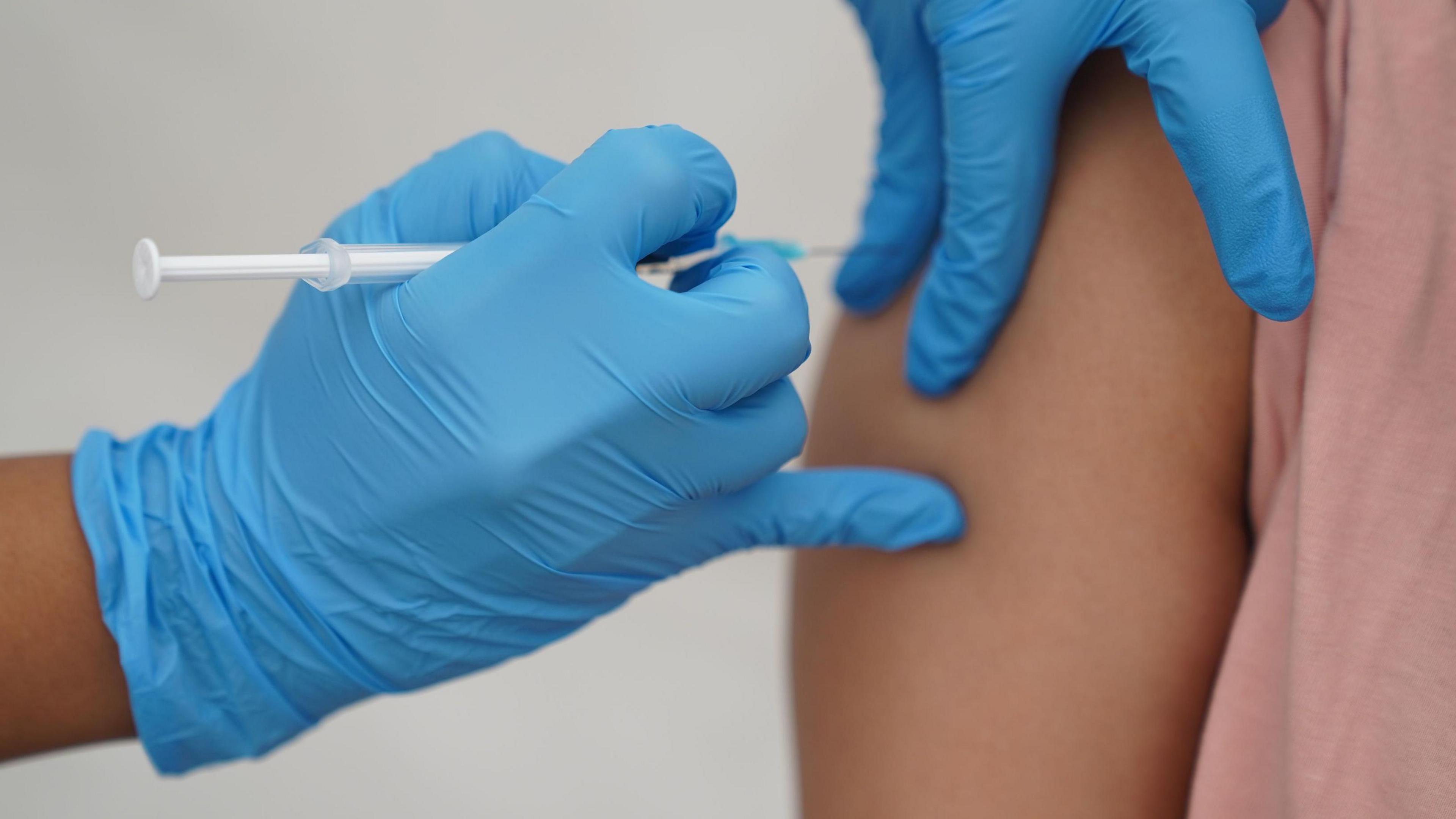
- Published21 October
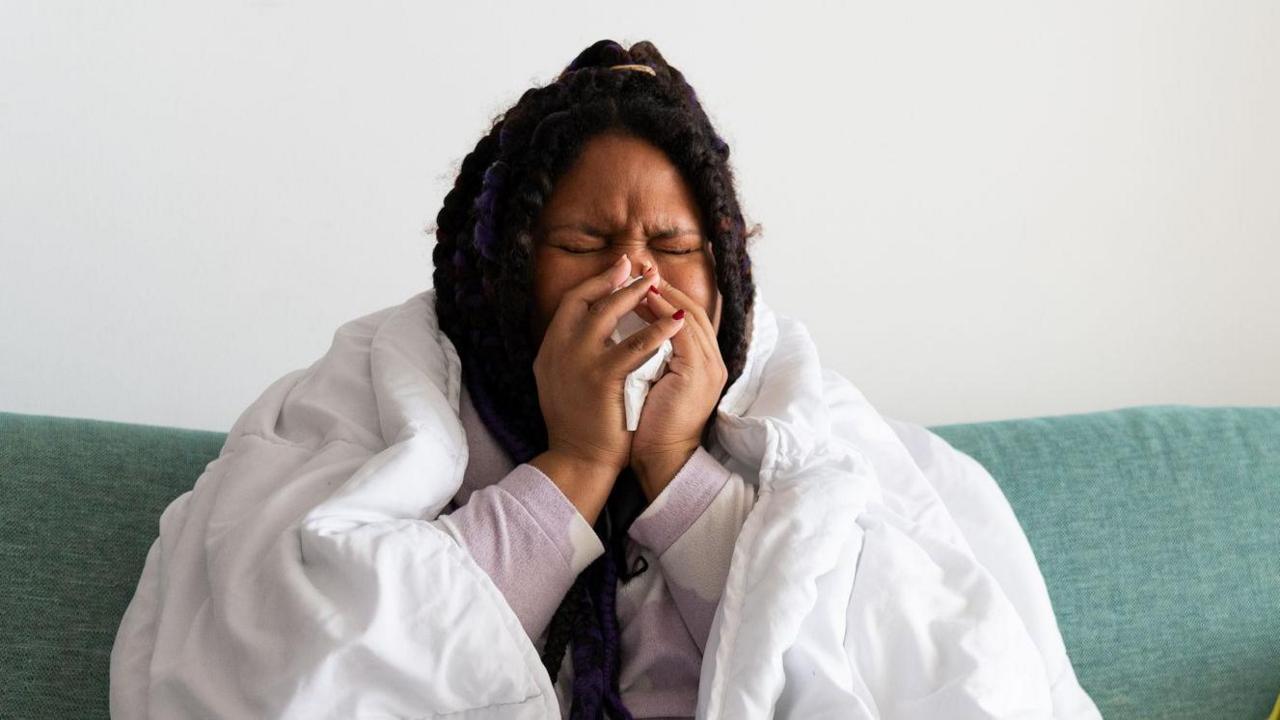
- Published16 November
